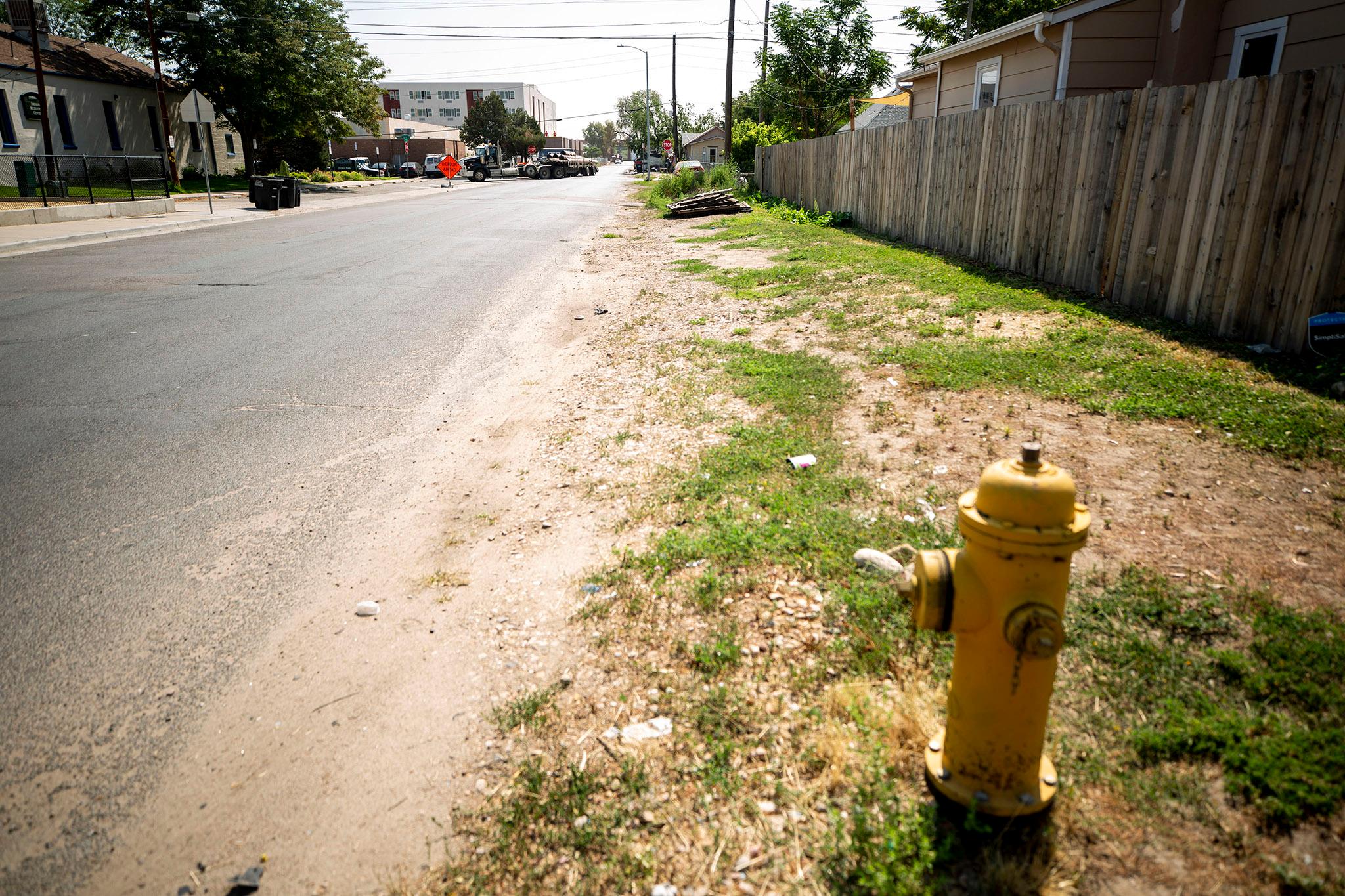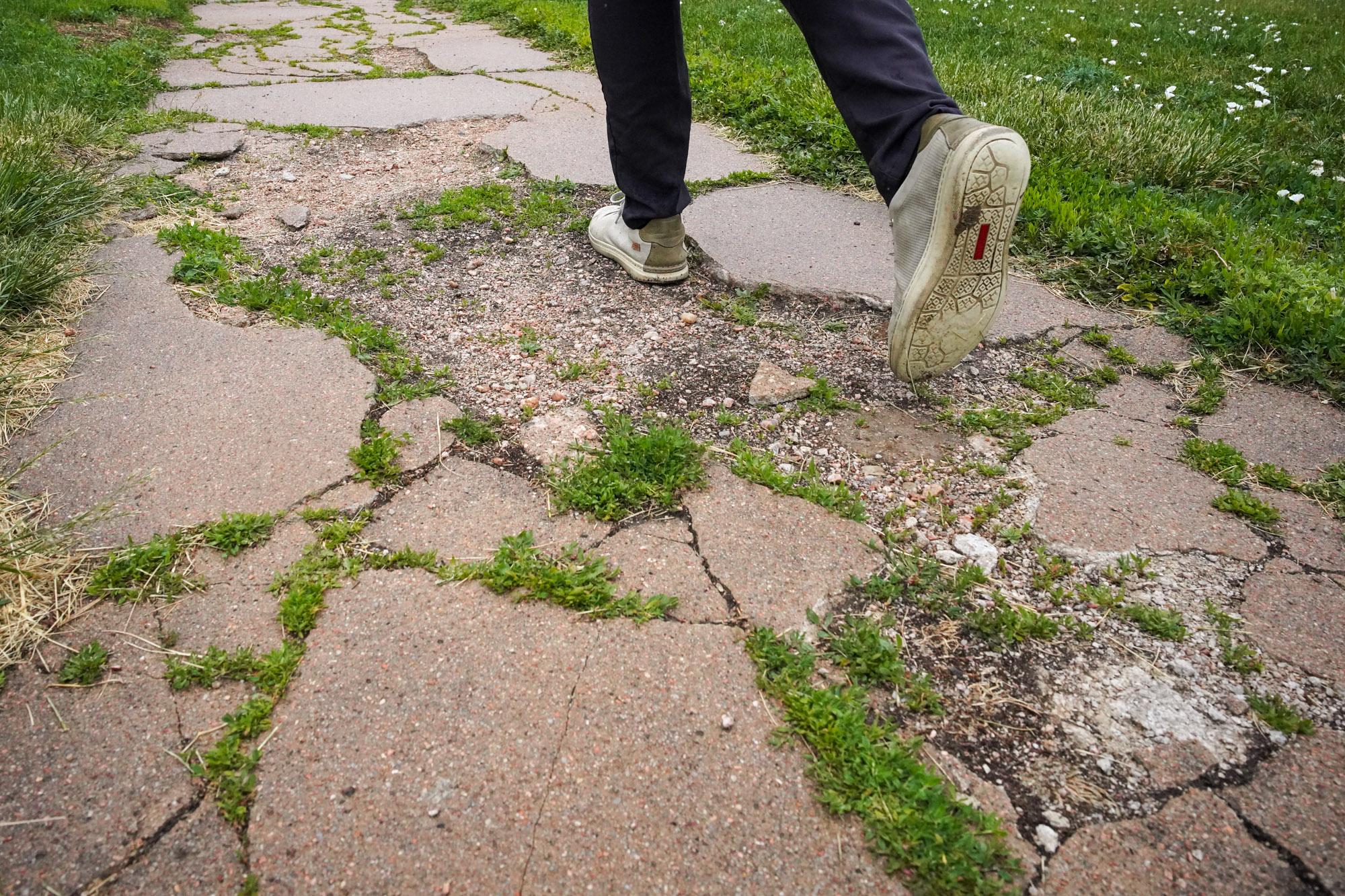A city analysis of an ambitious ballot measure designed to repair and build new sidewalks across Denver predicts the program would take much longer and cost much more than backers estimate.
Proponents of the measure, however, say the city's analysis is flawed.
Initiated Ordinance 307, more colloquially known as Denver Deserves Sidewalks, would make sidewalks the responsibility of the city and inject millions of new dollars into city coffers for sidewalk construction and maintenance through a new fee on property owners. Backers say the fee would raise more than $40 million a year that could be bonded upfront to raise $850 million to fully fund and build a complete city sidewalk network within nine years.
But the city's analysis of the measure (pg 32), produced for its official voter guide, casts doubt on the campaign's claims. It predicts the timeline to plan, repair and construct sidewalks would take approximately 27.5 years -- triple the estimate of advocates.

"The timeline of nine years established by this initiative cannot be achieved due to the capacity requirements that would be placed on both the City and County of Denver's resources as well as those of the various industries involved, such as limited concrete availability," the analysis reads.
The city also estimates costs will be much higher than advocates say.
It predicts a shortfall of $2.8 billion after nine years and $7.3 billion after including the cost of acquiring the land necessary for sidewalk widening and new sidewalk construction.
"It is unclear how this gap will be addressed and if there will be any cost to constituents," the analysis says.
The city estimates construction costs could reach $2 million per mile and land acquisition costs could reach $6.4 million per mile. Denver has estimated it has 300 miles of missing sidewalks and 830 miles of narrow sidewalks.
Jill Locantore, executive director of the Denver Streets Partnership, which is sponsoring the ballot measure, said the city's analysis is flawed.
"The statement in the blue book fails to account for the difference between the City's current piecemeal, underfunded strategy and the new proposal for a comprehensive approach with dedicated funding, more similar to other large-scale infrastructure projects," she wrote in an email.
The city's own estimate for a sidewalk buildout from 2019 ranged from $800 million to $1.4 billion -- in the same ballpark as Denver Deserves Sidewalks' cost projections. The city, in its new analysis, does not explain why its latest estimate has risen to $3.2 billion, Locantore noted.
Locantore also took issue with the city's assumption that costly land acquisition would be necessary on a large scale. She said her campaign envisions the city would widen sidewalks into the street -- which it owns -- rather than onto private property when that is more feasible.
She criticized the city's estimate of 27.5 years for full buildout, saying bonding against expected revenue will allow for an expedited timeline. She also questioned the city's claim that concrete availability could limit construction, saying its size justifies building a new concrete plant specifically to serve the project.
"By treating sidewalks like other large-scale infrastructure projects," she wrote, "the proposed program is very intentionally designed to overcome these constraints and enable a much more streamlined, cost efficient approach for providing Denverites with the infrastructure they need to get around our city safely."












